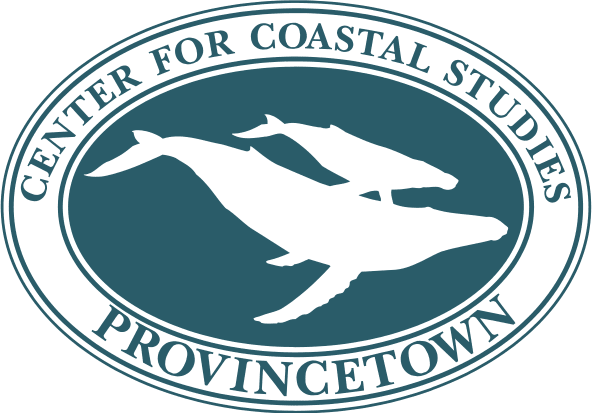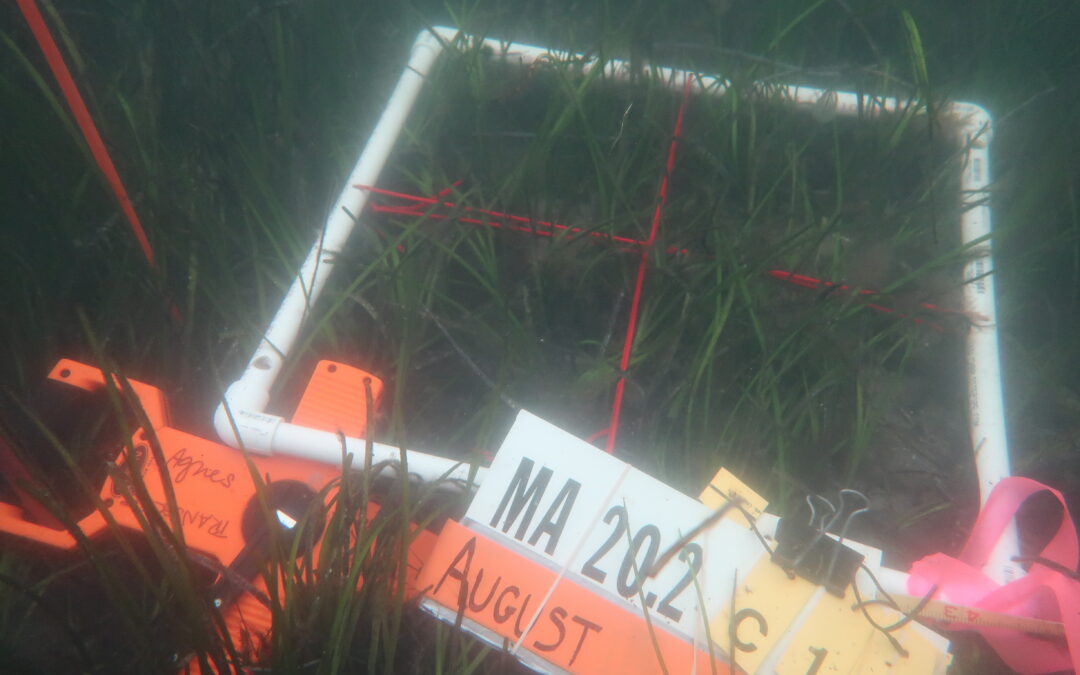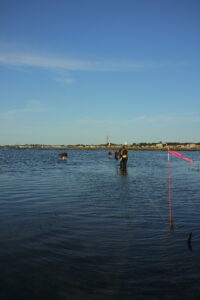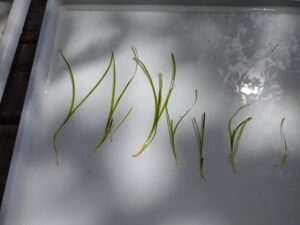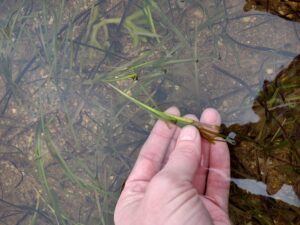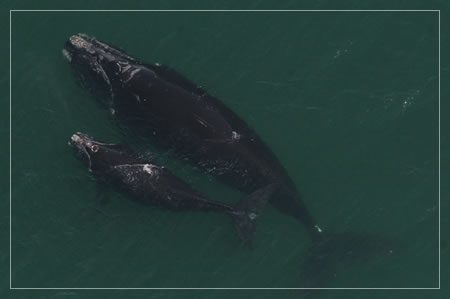Eelgrass (Zostera marina) plays an important role in healthy marine ecosystems, but eelgrass beds are shrinking throughout the Commonwealth, particularly on Cape Cod. Center for Coastal Studies marine ecologist Agnes Mittermayr, Ph.D., is leading efforts to understand why, and to develop strategies to preserve and restore these vital habitats.
At low tide throughout the year – either weekly or monthly, depending on whether the eelgrass is flowering or not – Agnes and her volunteers venture out to plots located in Pleasant Bay, Wellfleet’s Duck Harbor, and Provincetown’s East End. They measure the eelgrass coverage and density, and look for signs of disease, grazing, and the presence of epiphytes, which are plants that live on other plants. They also collect data relating to water quality, examining factors such as turbidity and temperature.
“By studying conditions at these locations, we’re learning what eelgrass needs to be healthy,” said Agnes, who has been studying eelgrass for 15 years (it was the subject of her Ph. D. dissertation).
“Eelgrass is important because it’s a vital habitat for fish and shellfish. It’s like a nursery where the young of the year can flourish, so it’s a biodiversity hotspot. It stabilizes the coastline by putting down roots and it takes up excess nutrients from the water column and puts them in the ground which is carbon sequestration,” she explained.
The goal of Agnes’ research is to contribute to a long-term international data set, which is stored at SeagrassNet. That data set will help communities here on the Cape and elsewhere to better understand how to encourage healthy seagrass.
“You need a baseline data set to understand what’s happening,” she explained. Data has been collected from Pleasant Bay and Duck Harbor for over a decade, but the data set for Provincetown began just last year.
Agnes explained that in the 1920’s, a wasting disease decimated eelgrass beds in the Northeast. It’s still recovering. This past spring, the center received funding from the National Park Service to examine the environmental factors that affect eelgrass beds and examine why certain eelgrass habitats have been slow to recover.
Part of Agnes’ recent research is focused on figuring out when eelgrass flowering occurs. That’s important because it dictates when scientists can collect donor plants and seeds that might be used for restoration efforts – both here on the Cape and in other parts of New England.
“No one had looked at when flowering occurs at various locations. Now we know. It was an important discovery,” said Agnes.
As if that weren’t enough, Agnes recently added a new pilot program, begun last year. She’s working with Salem State University to conduct stable isotope analysis to try to figure out how nitrogen from seal waste may be impacting the eelgrass ecosystem.
“Eelgrass falls under the Wetlands Protection Act, so we should be taking very good care of it,” said Agnes.
- Eelgrass shoots
- Eelgrass seeds
